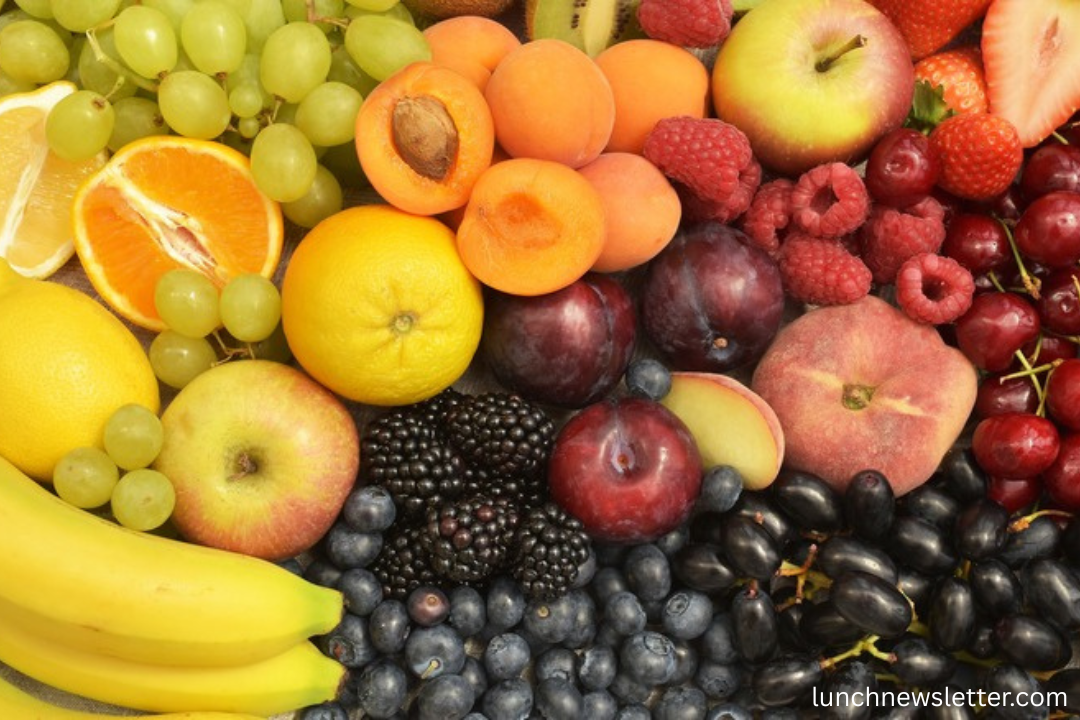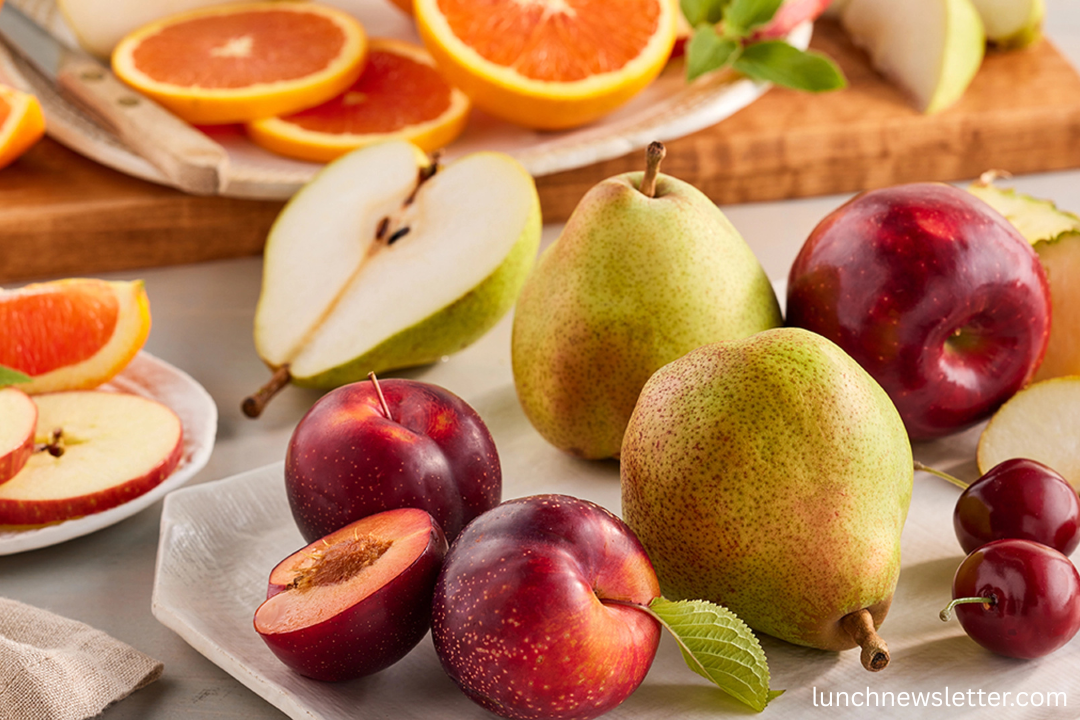Seedless fruits are gaining popularity for their convenience and delightful taste. From “sweet grapes to juicy watermelon, these fruits are not only easy to eat but also packed with essential nutrients. Without the hassle of seeds, they’re perfect for kids, smoothies, salads, and healthy snacks. More importantly, they offer a wide range of health benefits that support wellness and disease prevention.
This article explores the health benefits of 8 popular seedless fruits and explains why incorporating them into your diet is an innovative and nutritious choice.
What Are Seedless Fruits? Seedless fruits are varieties that either naturally lack seeds or have been cultivated to be seedless through agricultural practices like selective breeding or hybridization. These fruits develop without fertilization, making them ideal for consumers who prefer convenience without sacrificing taste or nutritional value.
Why Choose Seedless Fruits?
Choosing seedless fruits provides several advantages:
- Easy to eat, especially for children and the elderly
- No preparation is required to remove seeds
- Great for juicing, smoothies, and snacks
- Packed with vitamins, antioxidants, and hydration
Beyond convenience, these fruits contribute significantly to a healthy lifestyle.
Seedless Grapes
Seedless grapes are one of the most common and widely consumed seedless fruits. Available in red, green, and black varieties, they are rich in:
- Resveratrol: A powerful antioxidant that supports heart health
- Vitamin C: Boosts immune function
- Potassium: Helps regulate blood pressure
Regular consumption of seedless grapes may help reduce inflammation, improve circulation, and protect against chronic diseases such as cardiovascular conditions and diabetes.
Seedless Watermelon
Watermelon is a refreshing fruit known for its high water content. The seedless variety offers all the hydration benefits without the interruption of seeds. Key nutrients include:
- Lycopene: An antioxidant known to reduce cancer risk
- Vitamin A: Promotes eye health
- Citrulline: Enhances blood flow and may improve athletic performance
Consuming seedless fruits like watermelon can help keep the body hydrated and aid in detoxification.
Seedless Bananas
Bananas are naturally seedless fruits, making them incredibly popular worldwide. They are a fantastic source of:
- Potassium: Maintains fluid balance and supports heart function
- Vitamin B6: Aids in energy metabolism
- Fiber: Improves digestion and gut health
BaBananas’iber and natural sugars provide a quick energy boost, making them ideal for pre- or post-workout snacks.
Seedless Oranges (Navel Oranges)
Navel oranges are among the most beloved seedless fruits due to their sweet flavor and ease of peeling. They are loaded with:
- Vitamin C: Strengthens the immune system
- Folate: Supports brain health and fetal development
- Flavonoids: Improve blood flow and reduce inflammation
Incorporating navel oranges into your daily diet may lower the risk of heart disease and boost skin health.
Seedless Cucumbers
Cucumbers are often overlooked as fruits, but they belong to the same family as melons. The seedless versions are excellent for hydration and contain:
- Silica: Promotes healthy skin and hair
- Vitamin K: Supports bone strength
- Electrolytes: Aid in fluid balance
Adding seedless fruits like cucumbers to your meals can assist in weight management and detoxification.
Seedless Tomatoes
Tomatoes are technically fruits, and seedless varieties are becoming more popular in sauces and salads. They offer:
- Lycopene: Reduces oxidative stress
- Vitamin C and A: Boost immunity and vision
- Potassium: Helps regulate heart function
Eating seedless tomatoes may contribute to cancer prevention and promote heart and skin health.
Seedless Guavas
Seedless guavas are packed with nutrients and have a rich tropical flavor. They provide:
- Fiber: Supports digestion and controls blood sugar
- Vitamin C: Enhances collagen production
- Antioxidants: Neutralize free radicals
Including seedless fruits like guava in your diet can aid weight management and strengthen your immune system.
Seedless Papaya
Papaya is known for its digestive enzymes, and the seedless variety makes consumption easier. Nutritional benefits include:
- Papain: Aids in digestion
- Vitamin A and E: Support vision and skin health
- Folate: Promotes heart and brain health
Consuming seedless fruits such as papaya may help improve gut health and reduce inflammation.
Nutritional Advantages of Seedless Fruits

All seedless fruits offer essential vitamins, minerals, antioxidants, and dietary fiber. Their low-calorie, high-water content makes them excellent choices for weight loss, hydration, and overall wellness. Most importantly, they fit easily into a variety of diets, including vegan, vegetarian, gluten-free, and diabetic-friendly meal plans.
Are Seedless Fruits Genetically Modified?
Not all seedless fruits are genetically modified. Many are produced through traditional plant breeding techniques. For example, bananas and navel oranges are naturally seedless due to how they reproduce. Others, like seedless grapes and watermelons, are developed through hybridization or selective breeding without genetic engineering.
Always check labeling if avoiding genetically modified foods is a priority.
How to Incorporate Seedless Fruits Into Your Diet
Incorporating seedless fruits into your daily routine can be simple and delicious:
- Add seedless grapes or bananas to your morning cereal or yogurt
- Make a refreshing salad with seedless cucumbers and tomatoes
- Blend seedless papaya or watermelon into smoothies
- Use seedless oranges as a midday snack or in fresh juices
- Create fruit bowls featuring a mix of colorful seedless options
Snacking on seedless fruits is a convenient way to meet your daily fruit intake without dealing with seeds or prep time.
Frequently Asked Questions (FAQ’s)
What are seedless fruits?
Seedless fruits are varieties of fruit that either naturally lack seeds or have been cultivated to be seedless through techniques like hybridization or selective breeding. They offer a convenient, mess-free way to enjoy fruit without sacrificing taste or nutrition.
Are seedless fruits genetically modified?
Not alaFAQ’s fruit is genetically modified. Many are produced through traditional breeding techniques. For example, bananas and navel oranges are naturally seedless, while others, like seedless grapes, are developed through crossbreeding, not genetic engineering.
Are seedless fruits less nutritious than seeded fruits?
Seedless fruits generally offer the same nutritional benefits as their seeded counterparts. They still contain essential vitamins, minerals, antioxidants, and fiber, and the absence of seeds does not significantly affect their nutritional value.
How are seedless fruits made?
Most seedless fruits are created through selective breeding, hybridization, or natural mutations. In some cases, they are produced from plants thdon’tn’t require fertilization to develop fruit, a process known as parthenocarpy.
Can seedless fruits help with digestion?
Yes, many seedless fruits are high in fiber and water, which support healthy digestion. Options like seedless papaya, guava, and bananas contain digestive enzymes or fiber that aid in gut health and regular bowel movement.
Aren’t endless fruits good for kids?
Absolutely. Seedless fruits are ideal for children because they’re more manageable and safer to eat. They reduce the risk of choking on seeds and, due to their convenient and appealing texture, encourage kids to consume more fruits.
How should seedless fruits be stored to maintain freshness?
Most seedless fruits should be stored in a cool, dry place or the refrigerator. Fruits like grapes, watermelon, and apappapathey are fresher and longer when refrigerated, while bananas and tomatoes do better at room temperature.
Do seedless fruits taste different from seeded ones?
In many cases, seedless fruits taste just as good or even better than seeded versions. Because they are bred for consumer appeal, they often have a sweeter, milder flavor and softer texture, making them more enjoyable to eat.
Conclusion
Seedless fruits is about more than just convenience. These naturally or selectively bred fruits are loaded with nutrients that support heart health, digestion, immunity, hydration, and more. With their easy-to-eat nature and health-promoting properties, seedlevaryou’ds are perfect for all ages. By including a variety of seedless fruits in your diet, you can enjoy tasty, mess-free meals and boost your overall well-being. Whether you want them fresh, blended, or tossed into salads, seedless fruits are a brilliant addition to a balanced and nutritious lifestyle.
